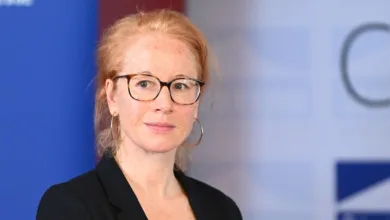La Mobilière entre dans le capital de Scout24 Suisse et devient son nouveau coactionnaire aux côtés de Ringier

Ringier, la première entreprise de médias internationale de la Suisse, et la Mobilière, la plus ancienne société d’assurances privée du pays, deviennent partenaires stratégiques au sein de Scout24 Suisse SA, réseau leader de places de marché en ligne dans les secteurs de l’automobile, de l’immobilier et des petites annonces. Au printemps 2016, la Mobilière fera l’acquisition de 50 % des participations dans Scout24 Suisse SA détenues par KKR et d’autres investisseurs. Une opération qui permettra à Ringier de consolider encore l’entreprise et d’en conserver la maîtrise.
KKR, un investisseur mondial leader, était entré dans le capital de Scout24 Suisse SA en août 2014 dans le but de développer encore la déjà très bonne position de l’entreprise sur le marché en coopération avec Ringier et d’en exploiter tout le potentiel. Scout24 Suisse SA avait alors profité, entre autres, de l’expertise intégrale de KKR dans les secteurs des médias, du numérique et des nouvelles technologies, et avait aussi pu accéder à un réseau global de consultants et d’experts en technologie. En la personne de Bob Bellack, cofondateur de Cars.com, un spécialiste international du secteur représentait KKR au conseil d’administration de Scout24 Suisse SA. Ce fructueux partenariat avait abouti à une accélération de la croissance surpassant les attentes des parties prenantes.
Au sein de la société faîtière Scout24 Suisse SA, les places de marché en ligne Autoscout24.ch, Motoscout24.ch et Immoscout24.ch, ainsi que la plateforme de petites annonces Anibis.ch sont parvenues à renforcer encore leur position de leader dans leur segment de marché respectif au cours les deux dernières années. Avec plus de 155’000 véhicules, AutoScout24 est l’incontestable numéro 1 des portails en ligne suisses dédiés aux voitures neuves et d’occasion, tandis qu’ImmoScout24 (76’000 annonces quotidiennes) est la première plateforme en ligne de l’immobilier d’habitation et professionnel. Quant au portail Anibis.ch, avec ses 900’000 offres il s’affirme comme la plus grande plateforme de petites annonces de la Suisse. Globalement, le groupe Scout24 forme le réseau de places de marché en ligne le plus complet de Suisse. Tous les mois, ses plateformes enregistrent quelque 26 millions de visites et touchent ainsi environ 35 % de la population suisse.





